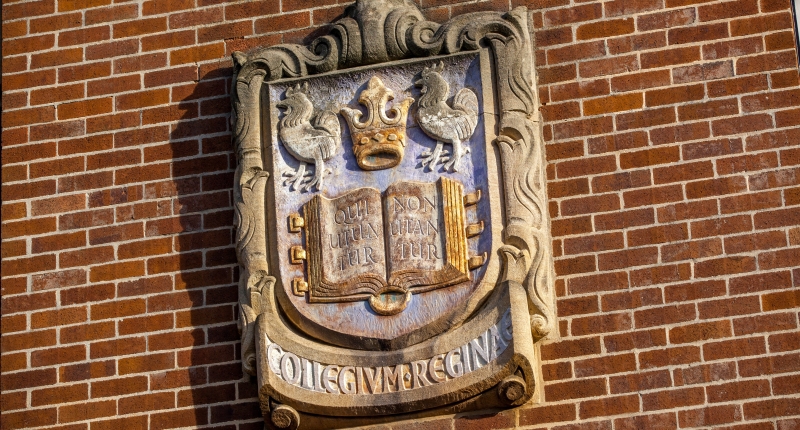Share this article with your friends
Click on the links below to share this article on social media.
History


The Queen’s College was founded in 1830 as one of the first Anglican Theological Colleges in England, pioneering training physicians (doctors) alongside clergy. In 1970 Queen’s took another radical step as it became an ecumenical college, with Methodists and Anglicans learning together in a single college.
At the turn of this century Queen's took another pioneering step, creating the Queen's Foundation for Ecumenical Theological Education. This brought into one institution:
- The Queen's College and its pattern of full-time and residential ordination training
- The Queen's Course and its structure of part-time non-residential ordination training
- A Research Centre dedicated to fostering research which serves the mission and ministry of the churches
Over the next decade Queen’s continued to develop its vision of being a diverse, inclusive community, in which deep learning and formation take place not despite but because of our differences. First, the Selly Oak Centre for Mission Studies - the successor body to the United College of the Ascension - was formed to train mission partners from the churches in Britain in preparation for service overseas and to welcome leaders from the wider world church to study at Queen’s. Then the Centre for Black Ministries & Leadership, was initiated to empower vocations and theological study among Black and Asian Christians.
In 2012 the Conference of the Methodist Church chose Queen’s as a Centre for the Methodist Church within its Discipleship and Ministries Learning Network, and we now receive all those who have been accepted for ministerial training. We also entered formal partnerships with the Diocese of Lichfield to train Readers and Curates, and with the Diocese of Worcester to train Readers.
Queen’s is in validation or partnership arrangements with a number of Universities, principally Durham University, Newman University and VU University Amsterdam. Queen’s is also accountable to a range of Government bodies including the Dept of Business, Innovation and Skills, HEFCE, QAA and UKVI.
Queen’s remains committed to being a diverse and inclusive learning community, which is expressed in five core areas of work:
- Ministerial formation, education and training. The Church of England and the Methodist Church are the primary sponsors of candidates who train full-time or part-time, residentially and non-residentially
- Research and scholarship
- Theological study for a wide range of self-funding students in the Centre for Discipleship and Theology
- A Global Christianity project which builds partnerships primarily with theological institutions in the global south
- The development of ministries and leadership in black majority churches
The range of partnerships and areas of activity mean that the Foundation welcomes a wide range of learners. Currently there are over 350 registered students and the student body is diverse in terms of denomination, nationality, ethnicity and theological conviction. The Foundation places a high premium on this diversity, believing that we learn in and through our encounter with those who are different, and that our diversity is a glimpse of the beauty and dignity of all people in the Body of Christ.
Vision Statement
Queen’s strives to be a diverse, challenging, Gospel-focused community, shaping people for God’s mission in the world.
Mission
As a community, gathered and dispersed, Queen’s strives to:
- practise deep attentiveness to Jesus Christ
- live by the Holy Spirit’s leading
- stimulate joyful, challenging exploration of the riches of the Bible and Christian traditions
- create a lively, extended prophetic community of worship, prayer and action
- provide searching, supportive pathways of formation and training for discipleship and ministry
- listen to voices which are often not heard
- enable the less confident to find their voice and flourish.
We celebrate unity in diversity, in a community that is international, multi-cultural, and ecumenical. We aim to enable Christians to deepen their spiritual life, to grow in a faith that is generous, enquiring, deeply rooted and creative in thought and practice, and to be passionate for God’s work in God’s world.
